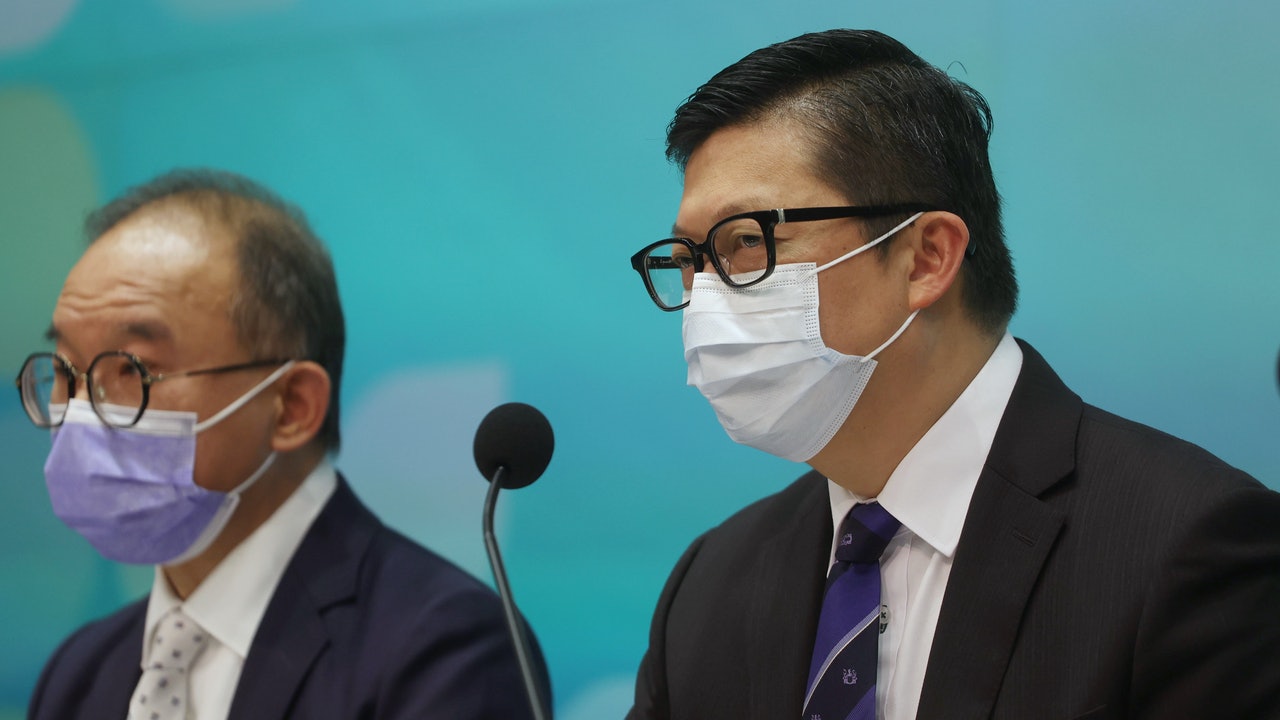Secretary for Security Tang Ping-kiang attended the "Policy Address" press conference yesterday (8th) and was asked by journalists whether he would promise to abide by the Johannesburg Principles when enacting Article 23 of the Basic Law and not "criminate with words."
Deng Bingjiang response time refers to criminal acts and must prove intent, "you can not simply tell you Pulled Link words (witch-hunting), then the Department would."
"All the News" followed with "Dengbing Jiang refused to guarantee 23 "Don’t be guilty of words." The text stated that "He did not guarantee, but reiterated vaguely that arrest and prosecution depend on evidence of intent." At the same time, it directly quoted Deng’s answer, "You can’t just talk about your four words." (Convicted by words)".
A spokesman for the Security Bureau issued a statement today (9th), criticizing the report for misleading the public and expressing deep regret.
The editor-in-chief of Zhongxin Li Yuehua replied to media inquiries, saying that everyone can look back at the content of the question and answer of the press conference, and Zhongxin has no other supplements.
Looking through relevant reports, the first paragraph stated that Deng Bingqiang "refused to promise to comply with the "Johannesburg Principles" that protect freedom of expression when enacting legislation." He also directly quoted Deng's original words, "We don't just say one sentence, but the arrest depends on whether there is evidence. I believe it won’t happen when you speak (convict by words).”
The Security Bureau believes that the report attempts to misunderstand Deng Pingqiang's explanation, saying that Deng clearly explained that the crime must have behavior and intentions, and that the Department of Justice has studied in detail whether there is sufficient evidence to prosecute. This is not a hasty decision or a sentence that can be convicted.
The spokesperson also pointed out that many media reports were consistent with Deng's statement, but the news reported that Deng's refusal to guarantee not to be guilty of words was misleading.
▼Relevant answer records of the press conference▼
Reporter:
"When Article 23 was enacted in 2003, the government said more than once that it would not be guilty of words and that it would abide by the Johannesburg Principles. Will you keep this license today and promise that the government will deal with Article 23 in the future? At that time, they will abide by the "Johannesburg Principles."
Deng Bingqiang:
You mentioned Article 23. In fact, all laws are related. Apart from observing behaviors, we will observe the intentions. Are you convicted if you just say a word?
Of course, you have to find out whether you have any intention to commit the crime you are talking about. You can't simply say the four words you are (convict by words), just the words.
There must be sufficient evidence, including proof of behavior and intention.
In addition, in addition to our arrest, the Legal Department will also study in detail if there is insufficient evidence that prosecution will be taken first, so it is not a hasty decision, but a well-thought-out decision.
Reporter:
Are the Johannesburg Principles no longer applicable?
Deng Bingqiang: The
principles...I believe they will all be applicable, but
yes
, as I said first...
Reporter:
Excuse me, I want to talk about the "Johannesburg Principles", that is, will the principle of "criminal with words" be used? Will it be enacted in Article 23 of the Basic Law?
Deng Bingqiang:
I have talked about it first, but I don't want to just talk about it.
For any of our laws and regulations, there must be an act, and there must be an intention at the same time.
We have to prove that you have committed an act and intention to break the law.
I mentioned it first, don't just talk about it.
In addition to our arrest, the Attorney General's Department will check if there is enough evidence and will prosecute first, so I believe that the situation you mentioned will not happen.
Legislators have clearly responded to the 23 recommendations in 2003
The Johannesburg Principles are a set of principles established in 1995 by experts in international law, national security and human rights.
In 2002, the then Commissioner of Law and Policy, Ou Yiguo, mentioned that the relevant principles are highly respected and are important reference materials. The government’s recommendations on the implementation of Article 23 are mostly in line with the "Principles."
The "Principles" stipulate that no one shall be restricted, harmed or punished in any form because of his opinions or beliefs.
At the same time, list the remarks that advocate the use of non-violent methods to change government policies or change the government; remarks against the nation, the country or its symbols, the government, its agencies or public officials, or the criticism or insults to foreign countries, should not be considered Be protected to pose a threat to national security.
Ou Yiguo said at the time that the implementation of Article 23 of the Basic Law was not intended to prohibit such forms of speech.
The relationship between the government and the media has become tense after the anti-revision law
In recent years, the government has had conflicts with the news media, especially the Internet media. As early as 2017, when the Chief Executive Carrie Lam Cheng Yuet-ngor was appointed to office, the Internet media was not interviewed for the next time.
The Office of The Ombudsman previously ruled that the relevant arrangements were unfair, and the Information Department later allowed Internet media that meet specific requirements to participate in government media activities.
During the anti-amendment period, interview conflicts intensified, and the relationship with the police was the most tense. The government later revised the "Police General Regulations" to tighten the definition of "media representative."
In recent days, after the policy address was released, the government held a briefing to explain the plan for the northern New Territories metropolis, and "Stance News", "News News" and "Independent Media" were all refused to attend.
01News
The Journalist Association today re-elected Chen Langsheng, the deputy chief of "Stance News", as the chairman: will fight for the right to interview. The police reform media defines the situation of student media’s loss of interview rights. There is an early warning that student reporters or "finished" [9.15 conflict] HKBU student reporters were arrested in the Department of Journalism Statement: The police should respect the right to interview [8.31 March] The Journalist Association and the Photographic Association criticized the police besieged reporters for severely trampling on the interview rights [01 Viewpoint] Returning the right of new media interviews The Hong Kong government should take the first step. The Ordinance was filed in the Court of First Instance for a winding-up petition. The Privacy Advisory Committee did not appoint a senior media person to break the practice since the reunification. Reporter Association: Contempt for the media.



/cloudfront-eu-central-1.images.arcpublishing.com/prisa/QBO67JF5HVAEFIWVE6YMOGZZ74.jpg)








/cloudfront-eu-central-1.images.arcpublishing.com/prisa/KMEYMJKESBAZBE4MRBAM4TGHIQ.jpg)


